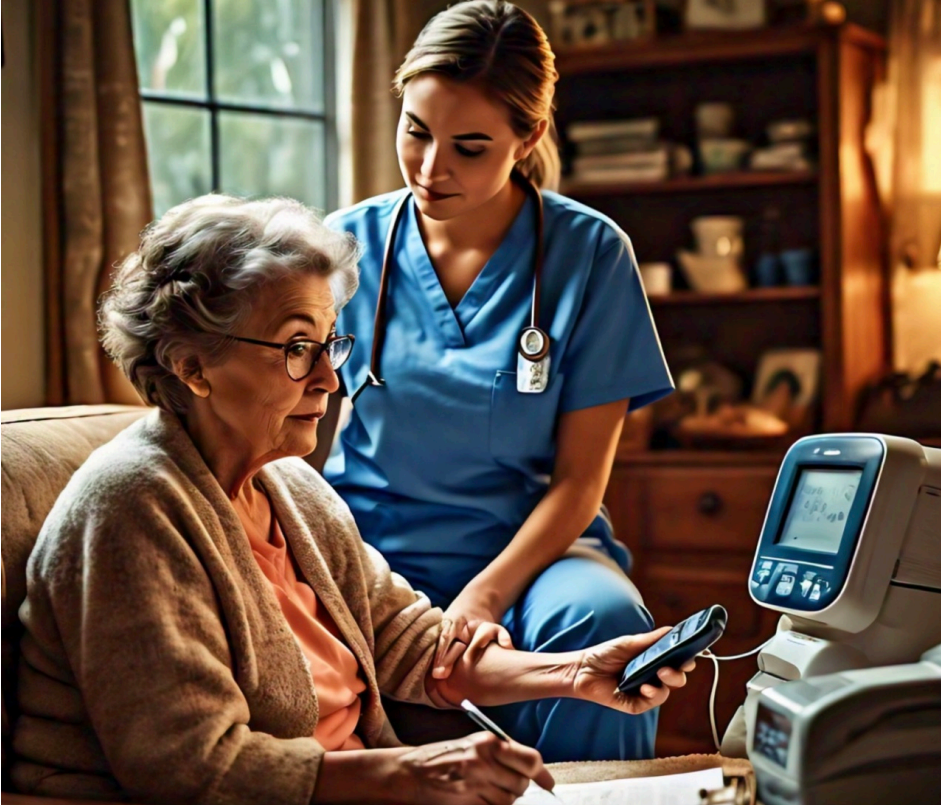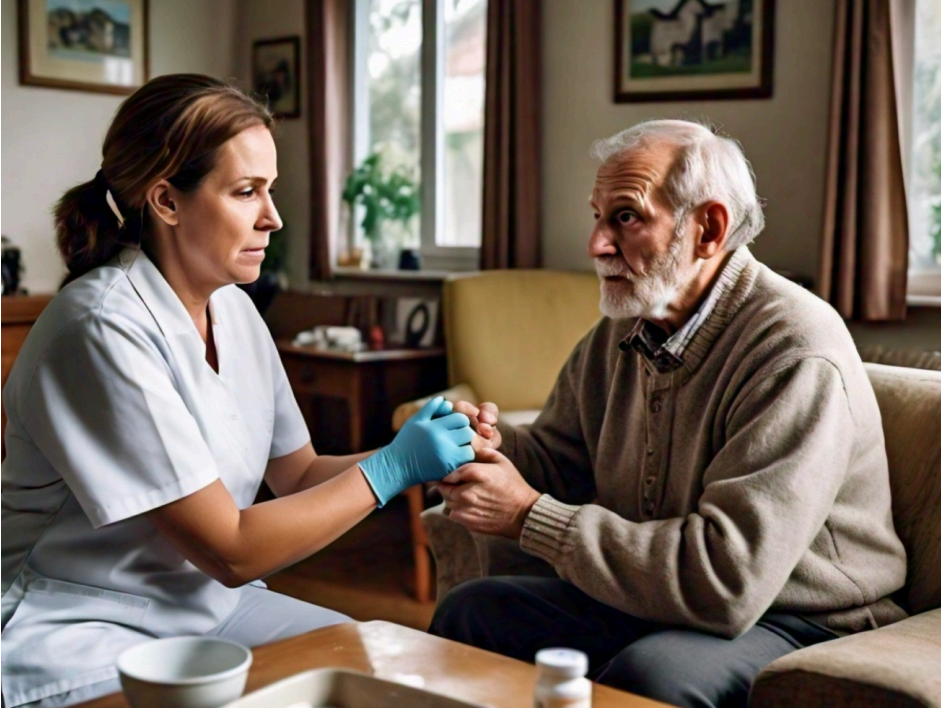Disease management is a crucial aspect of healthcare that focuses on preventing and managing chronic conditions to improve patient outcomes and quality of life. By implementing effective disease management strategies, individuals can reduce the risk of complications, avoid hospital admissions, and lead healthier lives. In this article, we will explore the essential services and techniques that enable successful disease management.

Patient Education: The Foundation of Disease Management
Patient education is the cornerstone of disease management. It empowers individuals to take an active role in managing their condition, making informed decisions, and adopting healthy behaviors. Healthcare providers should educate patients about their condition, treatment options, and self-care techniques, providing them with the necessary tools and resources to manage their disease effectively.
Medication Management: Ensuring Adherence and Safety
Medication management is a critical aspect of disease management, as non-adherence can lead to complications and hospitalizations. Healthcare providers should assist patients in managing their medications, ensuring they understand dosing schedules, potential drug interactions, and side effects. This can be achieved through medication therapy management (MTM) programs, which have been shown to improve medication adherence and reduce hospital readmissions.
Regular Monitoring: Tracking Progress and Identifying Potential Complications
Regular monitoring is essential for tracking patient progress, identifying potential complications, and adjusting treatment plans accordingly. Healthcare providers should schedule regular check-ups and health screenings, monitoring vital signs, lab results, and other health metrics. This enables early intervention and prevention of complications, reducing the risk of hospital admissions.
Lifestyle Coaching: Encouraging Healthy Behaviors
Lifestyle coaching is a vital component of disease management, as healthy behaviors can significantly impact disease progression. Healthcare providers should encourage patients to adopt healthy habits, such as a balanced diet, regular physical activity, stress management, and smoking cessation. This can be achieved through counseling, support groups, and referrals to specialized services.
Case Management: Coordinating Care and Accessing Resources
Case management is essential for ensuring that patients receive comprehensive and coordinated care. Healthcare providers should facilitate communication between patients, healthcare teams, and specialists, ensuring access to necessary resources and services. This can include home health care, telehealth services, and social support networks.
Home Health Care: Providing Medical Care in the Comfort of Home
Home health care is a vital service that provides medical care and support in the comfort of the patient’s own home. This can include skilled nursing care, physical therapy, occupational therapy, and speech therapy. Home health care enables patients to receive necessary care while avoiding hospital admissions and reducing healthcare costs.
Telehealth Services: Expanding Access to Healthcare
Telehealth services have revolutionized disease management by providing remote access to healthcare services. Patients can receive medical consultations, monitoring, and education via phone or video calls, reducing the need for in-person visits and improving access to care.
Conclusion
Effective disease management requires a comprehensive approach that incorporates patient education, medication management, regular monitoring, lifestyle coaching, case management, home health care, and telehealth services. By implementing these strategies, individuals can manage their conditions effectively, reduce the risk of complications, and avoid hospital admissions. Healthcare providers should prioritize disease management to improve patient outcomes, enhance quality of life, and reduce healthcare costs.
The postpartum period is a critical time for mothers and their newborn babies. It is a time of significant physical and emotional change, and both mothers and babies require specialized care and attention to ensure a smooth recovery and a healthy start to life.
Home Health Care: A Convenient and Effective Solution
Home health care offers a convenient and effective way to receive medical care and support in the comfort of your own home. For postpartum mothers and their newborn babies, home health care provides a range of benefits that can make a significant difference in their recovery and well-being.

Benefits for Postpartum Mothers
1. Personalized Care
Home health care allows for one-on-one attention and customized care plans tailored to each mother’s unique needs and preferences. This personalized approach enables healthcare professionals to address specific concerns, manage pain effectively, and provide emotional support during the postpartum period.
2. Pain Management
Home health care professionals can assess and manage pain related to childbirth, cesarean sections, or other postpartum complications. They can provide guidance on pain relief options, including medication, breathing techniques, and relaxation methods, to ensure mothers are comfortable and able to recover smoothly.
3. Emotional Support
The postpartum period can be emotionally challenging for new mothers. Home health care providers offer emotional support, counseling, and a listening ear to help mothers cope with feelings of anxiety, depression, or overwhelm. This support helps mothers build confidence in their ability to care for themselves and their babies.
4. Breastfeeding Support
Home health care professionals can provide guidance on proper latching, positioning, and breastfeeding techniques. They can also help address common issues like engorgement, nipple soreness, or low milk supply, making the breastfeeding experience more successful and enjoyable for mothers.
5. Monitoring and Education
Home health care providers monitor vital signs, track postpartum recovery, and educate mothers on self-care practices, such as wound care, medication management, and nutrition. This education empowers mothers to take charge of their health and make informed decisions about their care.
Benefits for Newborn Babies
1. Newborn Care
Home health care professionals provide specialized care for newborns, including feeding, bathing, and monitoring vital signs. They can also assist with umbilical cord care, circumcision care, and addressing common newborn concerns like jaundice or colic.
2. Neonatal Screening
Home health care providers perform routine screenings to detect potential health issues in newborns, such as hearing loss or congenital heart defects. Early detection enables prompt treatment and intervention, ensuring the best possible outcomes for babies.
3. Immunizations
Home health care professionals administer immunizations, protecting newborns from serious diseases and ensuring they receive the necessary vaccinations for a healthy start to life.
4. Developmental Monitoring
Home health care providers monitor developmental milestones, addressing any concerns or delays in growth and development. This early intervention can make a significant difference in a child’s long-term health and well-being.
5. Parenting Support
Home health care professionals offer guidance and support on parenting techniques, helping new parents build confidence in caring for their newborn. This support can include advice on sleep training, feeding, and soothing techniques.
Additional Benefits of Home Health Care
1. Convenience
Home health care eliminates the need for hospital visits, reducing stress and making it easier to receive medical care.
2. Cost-Effective
Home health care can be more cost-effective than hospital stays or frequent clinic visits.
3. Reduced Risk of Infection
Home health care reduces the risk of hospital-acquired infections, keeping mothers and babies safe.
4. Increased Bonding
Home health care allows mothers and babies to spend quality time together, promoting bonding and a strong foundation for their relationship.
5. Support for the Whole Family
Home health care providers can offer support and guidance to the whole family, including partners, siblings, and grandparents, helping them navigate the challenges of caring for a newborn.
In conclusion, home health care provides numerous benefits for postpartum mothers and their newborn babies, promoting a smooth recovery, healthy development, and a strong foundation for a happy and healthy family. By providing personalized care, pain management, emotional support, breastfeeding support, and monitoring and education, home health care professionals can make a significant difference in the lives of new mothers and their babies.





